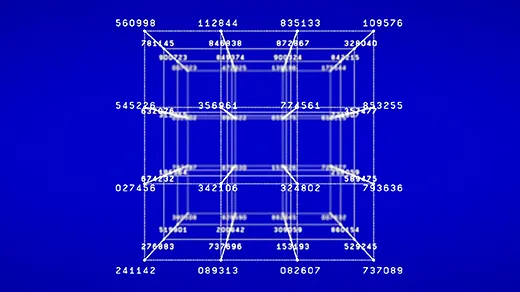What's up in
Computer Science
Latest Articles
The Year in Computer Science
Artificial intelligence learned how to generate text and art better than ever before, while computer scientists developed algorithms that solved long-standing problems.
Celebrated Cryptography Algorithm Gets an Upgrade
Two researchers have improved a well-known technique for lattice basis reduction, opening up new avenues for practical experiments in cryptography and mathematics.
An Easy-Sounding Problem Yields Numbers Too Big for Our Universe
Researchers prove that navigating certain systems of vectors is among the most complex computational problems.
Researchers Refute a Widespread Belief About Online Algorithms
Three computer scientists have disproved a long-standing conjecture about a fundamental problem involving imperfect information.
AI System Beats Chess Puzzles With ‘Artificial Brainstorming’
By bringing together disparate approaches, machines can reach a new level of creative problem-solving.
Cryptographers Solve Decades-Old Privacy Problem
Three researchers have found a long-sought way to pull information from large databases secretly, moving us closer to fully private internet searches.
The Computing Pioneer Helping AI See
Alexei Efros has spent his career learning how machines see differently from humans. Now he’s helping to bridge the gap.
Thirty Years Later, a Speed Boost for Quantum Factoring
Shor’s algorithm will enable future quantum computers to factor large numbers quickly, undermining many online security protocols. Now a researcher has shown how to do it even faster.
The Deep Link Equating Math Proofs and Computer Programs
Mathematical logic and the code of computer programs are, in an exact way, mirror images of each other.








